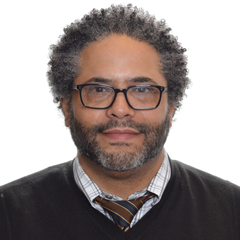Geoffrey Banks, Program Officer for Chicago Commitment, reflects on the first participatory grantmaking process in the Culture, Equity, and the Arts program.
In August of 2019, we launched a new grantmaking portfolio called Culture, Equity, and the Arts (CEA). Rather than simply rebrand our previous Arts and Culture program, CEA aims to address longstanding challenges in Chicago—including racial segregation and inequitable access to artistic and cultural experiences for historically underrepresented groups.
CEA employs a participatory grantmaking process that recommends slates of grant recipients for consideration by Foundation leadership. In the months leading up to the launch of CEA, we sought to learn from other funders’ experiences with participatory processes. We reviewed Cynthia Gibson’s helpful paper commissioned by the Ford Foundation, called Participatory Grant Making: Has Its Time Come?, and Grantcraft’s instructive guide, called Deciding Together: Shifting Power and Resources Through Participatory Grantmaking. It was particularly informative to speak with several funders in other cities that have pursued participatory philanthropic approaches.
Throughout these conversations, we heard several variations of the following: “The process can become somewhat messy, at times, but the benefits entirely justify the effort.” Other funders emphasized how participatory grantmaking provides residents with a sense of agency in addressing challenges in their community and produces a rich and creative grant decision-making process by including a variety of perspectives and personal experiences.
Our Participatory Grantmaking Process
In September of last year, we chose 11 diverse Chicagoans to serve as participatory grantmakers. They represent a range of racial and ethnic groups, life experiences, and careers in a variety of sectors, including: the arts, media and journalism, community development, and nonprofit programming. Five of the panelists were African-American, four were white, and two were Latinx; seven were women and four were men. Their professional backgrounds ranged from early career to retired. In a deliberative process, they reviewed and rated 19 applications, recommending a subset of requests for funding based on four organizational values or attributes, which are:
- Collaboration;
- Commitment to fostering equity;
- Connectivity, reflecting an organization’s relationship with the city and its neighborhoods; and
- Relevance, considering how the organization is in dialogue with contemporary issues.
The participatory grantmakers’ conversations were thoughtful and nuanced, and they applied the new criteria rigorously. In general, organizations that were recommended for funding demonstrated their commitment to equity by who is at decision-making tables; how decisions are made; and how power, resources, and responsibilities are shared.
When reviewing applications for funding, one participatory grantmaker noted, “The discrepancy between diversification efforts in [the organization’s] public-facing activities and those at the management level is striking.” Participatory grantmakers tended to rate organizations higher when they saw the attributes outlined by MacArthur in our grant application as embedded in those organizations’ missions, histories, and core programming. A participatory grantmaker remarked that, for these organizations, “equity is not a separate initiative or declaration.” Another said "’outreach’ looks different when you are actually of the community you serve.”
This is only a small sample of the many themes that emerged from our pilot process. For more insights into the participatory panelists’ in-depth discussion, please see our paper, Themes from our Participatory Grantmaking Pilot in the Arts.
Ultimately, the panel recommend 10 organizations to MacArthur’s President and Board of Directors, who approved multiyear general operating grants. We determined grant amounts based on new factors, such as staff and board demographics and whether the organization’s mission and goals reflect diversity, equity, and inclusion.
More Inclusive Eligibility Criteria
To open the opportunity to apply for CEA grants to more organizations, we now accept Letters of Inquiry. Read about our new eligibility criteria and learn how to submit an inquiry.
In the spirit of humility and introspection, we will learn from our participatory grantmaking pilot and refine and improve our approach. Based on a detailed survey and an in-person feedback session with the participatory grantmakers, we will revise the CEA application form and adjust the process for 2021 and beyond. We pledge to share updates about how this process evolves over time.
Taken as a whole, we found our first experiment with participatory grantmaking to be exciting, challenging, and complex. Now, we, too, can say participatory grantmaking is somewhat messy, at times, but the benefits entirely justified the effort.





